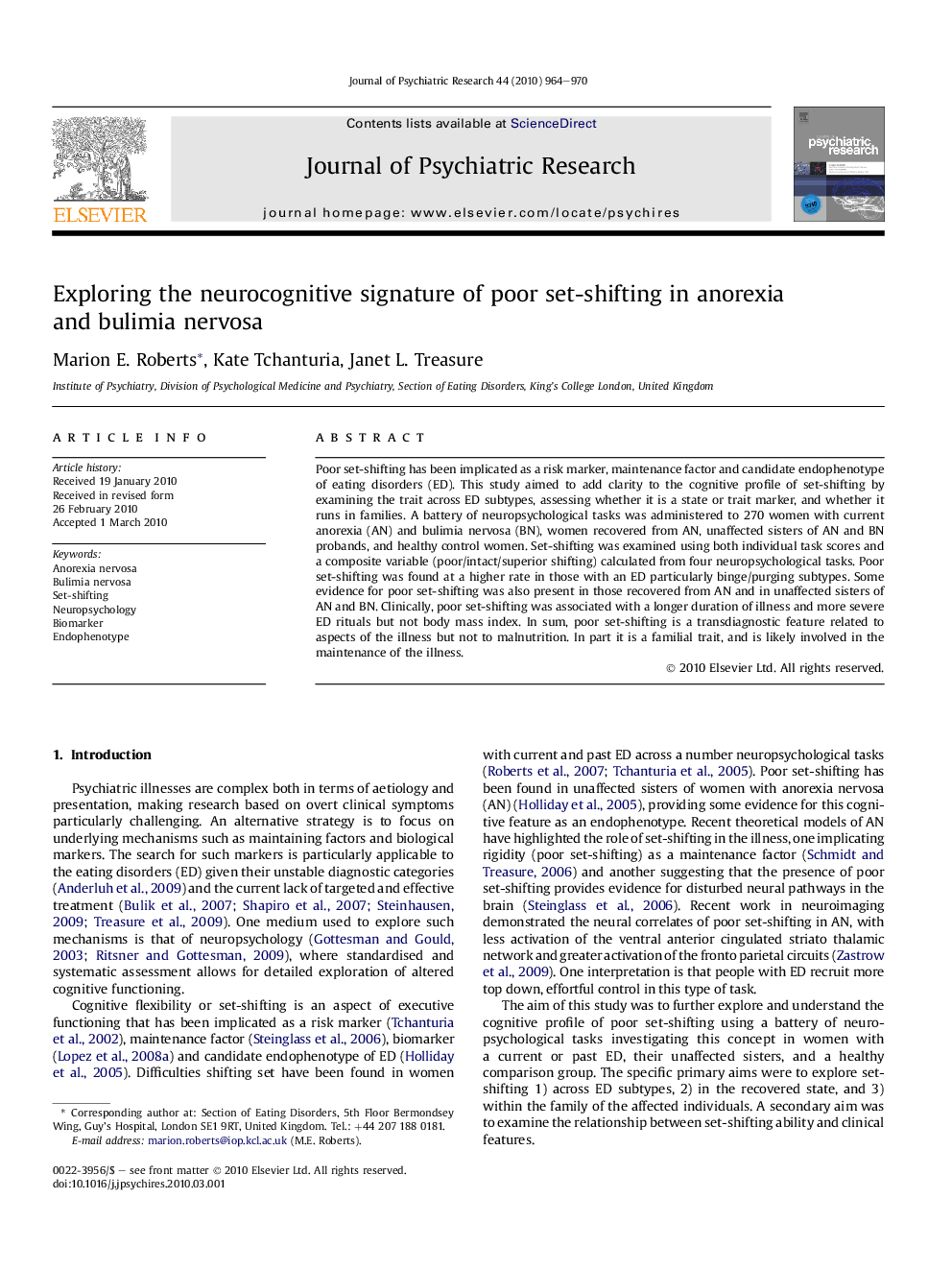| Article ID | Journal | Published Year | Pages | File Type |
|---|---|---|---|---|
| 327768 | Journal of Psychiatric Research | 2010 | 7 Pages |
Poor set-shifting has been implicated as a risk marker, maintenance factor and candidate endophenotype of eating disorders (ED). This study aimed to add clarity to the cognitive profile of set-shifting by examining the trait across ED subtypes, assessing whether it is a state or trait marker, and whether it runs in families. A battery of neuropsychological tasks was administered to 270 women with current anorexia (AN) and bulimia nervosa (BN), women recovered from AN, unaffected sisters of AN and BN probands, and healthy control women. Set-shifting was examined using both individual task scores and a composite variable (poor/intact/superior shifting) calculated from four neuropsychological tasks. Poor set-shifting was found at a higher rate in those with an ED particularly binge/purging subtypes. Some evidence for poor set-shifting was also present in those recovered from AN and in unaffected sisters of AN and BN. Clinically, poor set-shifting was associated with a longer duration of illness and more severe ED rituals but not body mass index. In sum, poor set-shifting is a transdiagnostic feature related to aspects of the illness but not to malnutrition. In part it is a familial trait, and is likely involved in the maintenance of the illness.
